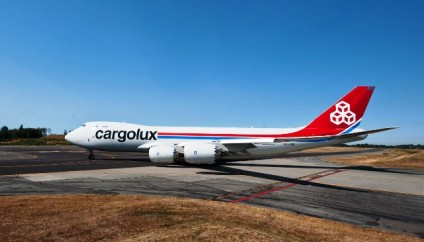Cargolux adopts EASA FTL ahead of mandatory introduction date
18/02/2016 - 15:31:00
On 24 January 2016 Cargolux introduced the European Aviation Safety Agency’s Flight Time Limitations (EASA FTLs), the new flight and duty time limitations adopted by the European Parliament. The introduction was a first for an airline in Luxembourg and took place ahead of the mandated introduction date on 18 February.
 Besides harmonizing flight and duty limitations (FTL) for pilots across the European Union, and thus creating a level playing field, EASA FTL brings a series of safety improvements in crew protection against fatigue. In particular, a more comprehensive set of rules considering the body clock compensates for the sleep disruption resulting from long-distance time zone crossings (jet lag). Also, more flights are considered night flights with corresponding shorter duty periods and additional flight and duty limits, introducing additional extended recovery rest periods as barriers to cumulative fatigue.
Besides harmonizing flight and duty limitations (FTL) for pilots across the European Union, and thus creating a level playing field, EASA FTL brings a series of safety improvements in crew protection against fatigue. In particular, a more comprehensive set of rules considering the body clock compensates for the sleep disruption resulting from long-distance time zone crossings (jet lag). Also, more flights are considered night flights with corresponding shorter duty periods and additional flight and duty limits, introducing additional extended recovery rest periods as barriers to cumulative fatigue.
The new EASA FTL rules are the result of more than five years of work of safety experts representing pilots, cabin crew, airlines, national aviation authorities and the European Commission under the leadership of EASA.
Going well beyond the minimum EASA FTL requirements on fatigue management, Cargolux has adopted a Fatigue Risk Management (FRMS) scheduling system, which makes use of the ‘SAFE’ bio-mathematical model links to its crew rostering software. SAFE is an acronym for the System for Aircrew Fatigue Evaluation; a computer program from UK based FRMS that includes algorithms to evaluate pilot alertness. Cargolux’s industry-leading system has been validated by a huge airline data set that has been compiled over decades of studies with commercial aircrew.
Using bio-mathematical alertness predictions in this manner allows Cargolux to validate pilots’ schedules against defined fatigue limits at roster publication (phase 1) and ahead of any roster amendments (phase 2); something of a frequent occurrence due to the airline’s flexible customer driven network. A retro-perspective roster analysis constitutes the third phase of the FRMS scheduling incorporating a closed-loop on how Cargolux manages fatigue supplemented by data collection and fatigue report investigations.
Cargolux will engage in a working dialogue with its pilot representatives both in the Fatigue Safety Action Group (FSAG) and the Joint Crew Scheduling Committee (JCSC) safety and quality of life issues. The new Cargolux Fatigue Risk Management System is warmly endorsed by the national authority La Direction de l’Aviation Civile (DAC) and the Luxembourg unions who actively participate in this new system.























































